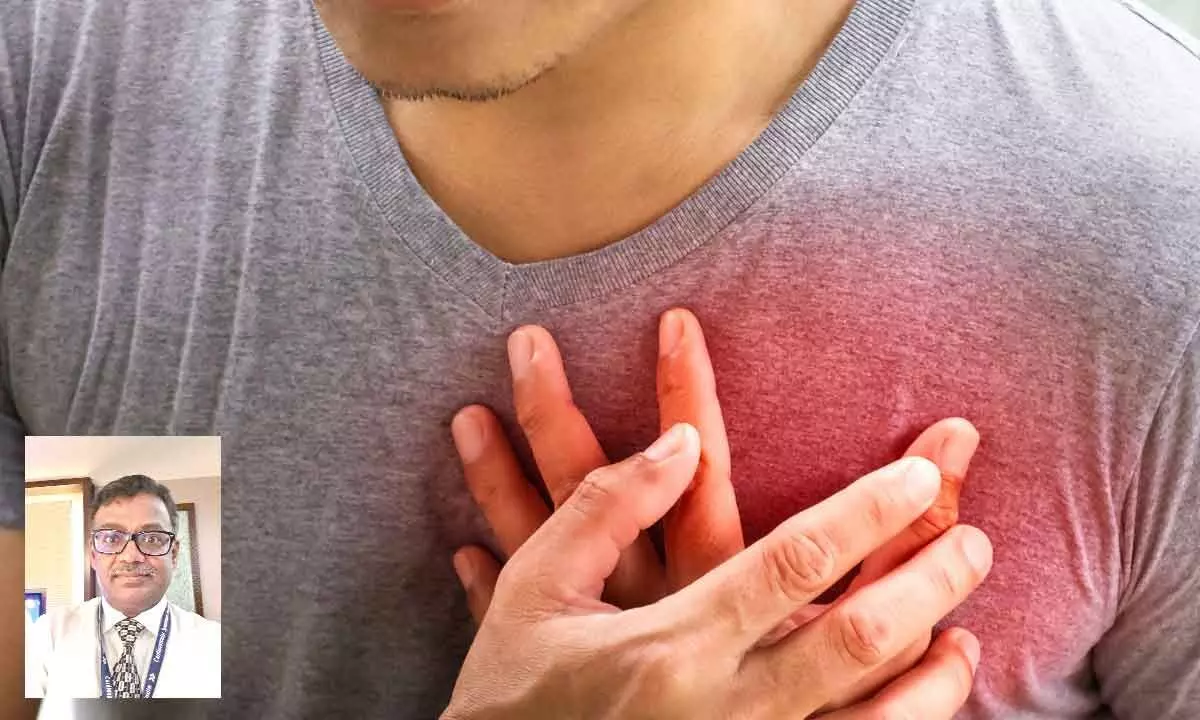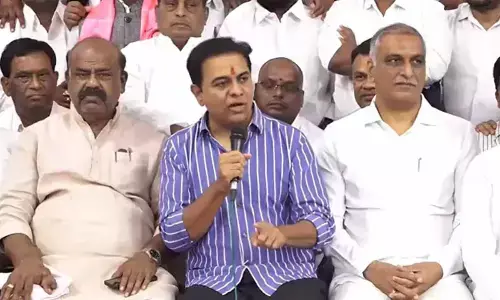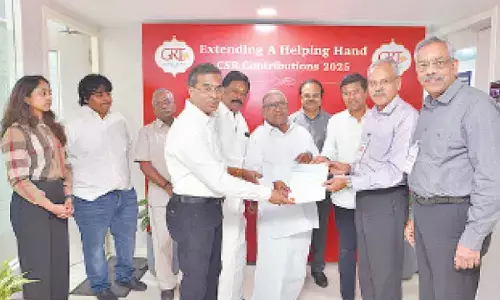Heart attack is now a lifestyle disease

Senior cardiologist and head of Cardiology department in SVIMS Dr D Rajasekhar
- Currently, about 50% heart attack patients don’t have any of the four basic risk factors
- Isotonic exercises like walking, cycling and swimming are ideal, says senior cardiologist Dr Rajasekhar
- Heart attacks at younger age are more often in men than in women, less among premenopausal women
Tirupati: In recent times heart attacks are being witnessed among many youngsters who are in their 30s and 40s which has been causing panic among people. To know the reasons for such a trend, the early symptoms, the risk factors, etc., The Hans India spoke to senior cardiologist and head of Cardiology department in SVIMS Dr D Rajasekhar.
He said that traditionally, heart attack was a disease of the rich and affluent, but nowadays it is being seen among the poor also. Diabetes, hypertension, smoking and cholesterol are considered the risk factors for heart attack but nowadays as much as 50 per cent of heart attack patients do not have any of these four risk factors.
"The reason for this changing scenario is changing lifestyle. Heart attack has become a lifestyle disease. Smoking, alcohol misuse, fast food, mental stress, emotional stress, physical stress, obesity, sedentary lifestyle and altered sleep patterns are all lifestyle related. Even diabetes is a disease of lifestyle, high BP is a result of stress," he explained.
Risk factors for attack can be classified as modifiable and non-modifiable. As age advances, the risk of heart attack would be higher. Heart attacks at younger age are more often in men than in women, in fact heart attacks are less frequent in premenopausal women, he added.
Dr Rajasekhar says, "By positive family history we mean heart attacks at age less than 50 in men and 60 in women in parents or siblings. Other risk factors like lifestyle related ones are modifiable to a great extent. Moderate exercise is very useful in many ways like maintaining ideal body weight, increasing HDL cholesterol and reducing chances of high blood sugar. Yoga and meditation may help in modifying life style".
Going further about exercises, he said that there are two types namely isometric and isotonic exercises. Isotonic exercises like walking, cycling and swimming are ideal for middle aged individuals. Isometric exercises like weightlifting or gym exercises may not help and may harm individuals with disease. Brisk walking for 45 minutes in the morning or evening is the ideal exercise and should be carried out at least five days a week.
Also, smoking does no good and leads to bronchitis, lung cancer and heart attacks and the heart attack risk returns to baseline only after 10 years of cessation of smoking. Alcohol is at best avoided. On diet which has an important impact on heart attack risk, Dr Rajasekhar says nuts, fruits and vegetables are good, vegetarian diet is better. The recommendation regarding oil consumption is 500 gram per month per individual is ideal.
Obese individuals should aim to lose 1 kg every month through diet and exercise. Intermittent fasting is very helpful and it can be weekly fasting. Alternatively we can have late breakfast and early dinner in such a way that the gap between dinner and breakfast is 14 hours. Any chest discomfort should not be neglected as gastric trouble and immediate medical attention should be sought at the nearest hospital or personal physician. Any pain which is severe, lasts more than 10 min and has associated swelling needs further attention, Dr Rajasekhar said.











